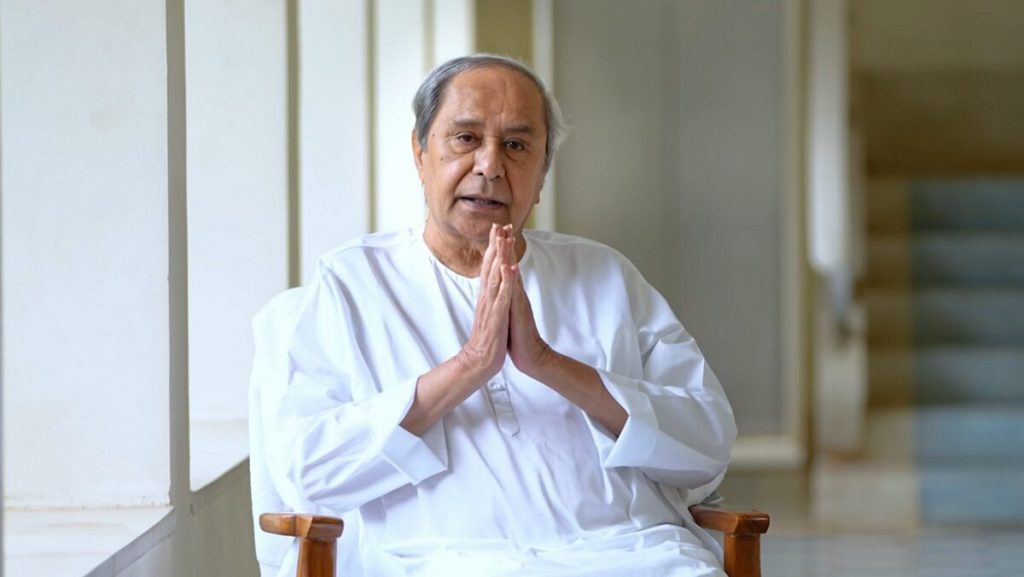In Photos | Is Nitish Kumar set to be India's longest-serving CM? A look at historic tenures
With the National Democratic Alliance’s thumping victory in the Bihar Assembly elections, the Janata Dal-United’s Nitish Kumar is on course to take oath as chief minister once again. The veteran politician has already served as Bihar’s chief minister nine times. But who else has the honour of serving as CM for so long?
)
Naveen Patnaik held the post of chief minister of Odisha for 24 years. He came to public office in 2000 and stepped down on June 12, 2024. Patnaik was known for his calm demeanour, simple lifestyle and firm decisions. Under his leadership, Odisha transformed from a disaster-prone state to a governance model admired nationwide. PTI
Pawan Kumar Chamling (left) served as the chief minister of Sikkim from 1994 to 2019, making him India’s longest-serving CM. Leading the Sikkim Democratic Front, he focused on environmental conservation, organic farming, rural development, and political stability. It was under his leadership that Sikkim was positioned as India’s first fully organic state. PTI
Marxist leader Jyoti Basu served as West Bengal’s chief minister for 23 years from 1977 to 2000, the longest tenure for any CM from a national party. A CPI(M) stalwart, he led the Left Front with a focus on land reforms, rural empowerment, and decentralisation. Although his era was marred by criticism, Basu remains globally respected as one of India’s most influential communist leaders. Image Courtesy: @sheshapatangi1/X
A leader from the Janta Dal (Secular), Gegong Apang served as CM for multiple terms between 1980–1999 and 2003–2007, totalling over 22 years in Arunachal Pradesh. Leading one of India’s most remote states, he focused on connectivity, tribal rights, and administrative expansion. He played a crucial role in strengthening the state's administrative framework. Although his tenure spanned turbulent political realignments, he remained dominant through coalition-building. Wikimedia Commons
Serving more than 21 years as the chief minister of Mizoram, Lal Thanhawla oversaw major infrastructure projects, peace consolidation after the insurgency era, and social development. He served five terms between 1984 and 2018 in office. A Congress veteran, he is credited with expanding road connectivity in Mizoram. PTI
Virbhadra Singh, a towering Congress figure, served six terms totalling around 21 years between 1983 and 2017 in Himachal Pradesh. Known as 'Raja Saab' for his royal lineage, he championed hill development, education, and rural connectivity. Despite political rivalries and scandals, Singh retained immense popularity, especially in rural areas, becoming one of India’s most enduring and charismatic state leaders. PTI
Manik Sarkar served as chief minister of Tripura from 1998 to 2018, earning respect as India’s 'poorest' CM due to his austere lifestyle. A CPI(M) leader, he strengthened law and order, reduced insurgency, and promoted education and healthcare in the state. It was his simple and corruption-free image that won public trust. PTI
Nitish Kumar has served multiple terms since 2005, making his cumulative tenure exceed 18 years. He first came to public office for just seven days in 2000, but made an impact on the minds of the people. He again became the CM in 2005 and has been holding the fort since then. Kumar is set to serve his 10th term after the NDA stormed to power in this year's Bihar elections. PTI
A stalwart in politics, M Karunanidhi served as Tamil Nadu’s chief minister across five terms from 1969 to 2011. He has been in the top position for about 18 years. A literary icon and Dravidian movement leader, he championed social justice, reservation policies, and linguistic pride. AP
Parkash Singh Badal served as Punjab’s CM for five terms between 1970 and 2017, accumulating roughly 18 years in office. Badal is a Shiromani Akali Dal veteran, and his policies focus on agriculture, rural welfare, Sikh community rights, and federalism debates. Despite political controversies, Badal maintained strong support among farmers. His leadership influenced Punjab’s political culture, especially on issues involving religious identity and agrarian concerns. PTI